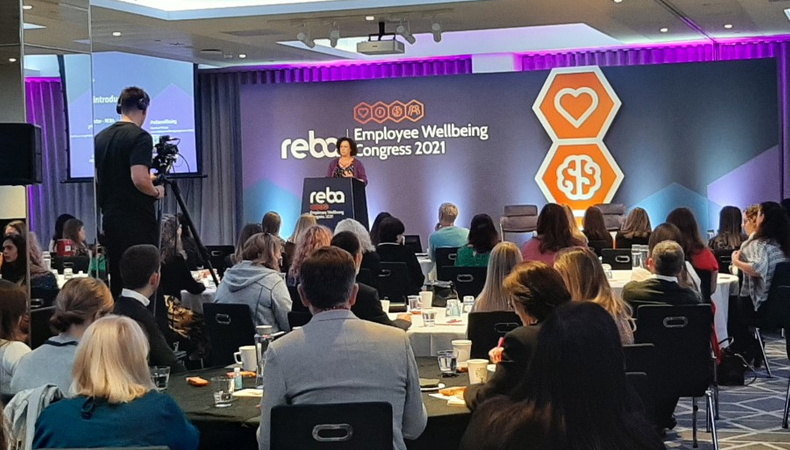A values-based workplace culture needs to be at the core of employee wellbeing

As always, there was a lot to cover, with our roundtables proving a big success as the REBA community got together to share ideas and exchange knowledge on how they’re tackling workplace wellbeing issues.
Trying to capture all of the key takeaways from the day is no easy task, and frankly not possible in a 700 word article! But there is one crucial message that came up time and again during the event, that being the need for deeper value.
The relationship between employees and employers is changing and this is driving more demand for a wellbeing-led approach to the employee experience. Our opening keynote speaker Rory Sutherland, vice chairman at Ogilvy UK and author of Alchemy: the surprising power of ideas that don’t make sense, argued that over the past decade the employee/employer relationship has been a transactional one, but that is changing.
“We need to deepen the value exchange between employees and employers,” he said. And this is the central idea that ran through the Employee Wellbeing Congress.
Generating better value
So what do we mean by value? One speaker highlighted that we are returning to the old definition of the Employee Value Proposition – employees want to know that they are valued by their employer, that they will be cared for and what (wellbeing) benefits they will receive in exchange for their skills.
But what employees value is also changing. Flexibility and autonomy are increasingly valuable commodities to employees, who want the freedom to work as it suits them and to move away from traditional working patterns. The same applies to the working environment. Employees increasingly value different types of environment, from quiet spaces that enable uninterrupted creativity, to interactive and community orientated areas that encourage social interaction.
And it is perhaps the ‘social’ element where the biggest gains can be made. A values-based culture that not only enables employees to work in the most productive way for them, but also creates purpose and wider value in the community is becoming more important and highly valued by employees.
Wellbeing is now tapping into much broader social issues, including sustainability, inclusion and recognition, all of which combine to develop deeper relational feelings between employers and employees. Wellbeing is increasingly about total value – not just about providing a health and/or wellbeing-related benefit.
The changing role of reward
So where does this leave reward professionals? Simply, at the heart of the wellbeing. Reward is not just about compensation, it relates to the total package for employees.
Wellbeing has to be thought about strategically and the reward function is perfectly placed to bring together all of its elements from inclusion, recognition and employee benefits, to building social capital in the community and creating a values-based workplace culture.
As Sutherland noted, the pandemic has let the ‘genie out of the bottle’. There is no going back to how things were before, employees want greater value and employers need to up the ante to provide a wellbeing strategy that supports them no matter how they choose to work.
The author is Dawn Lewis, content editor at REBA.
Keep your eyes peeled for more insights from the Employee Wellbeing Congress – videos from the sessions will be released in the next couple of weeks.






